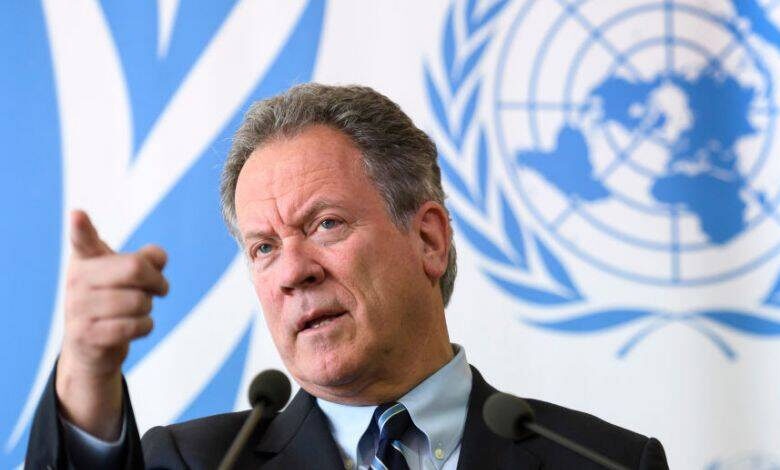Nobel UN food agency alerts from the risk of famine in 2021

The head of the World Food Program relates that the Nobel Peace Prize has given the UN agency the green light to alert world leaders that next year would be worse than this year. Without billions of dollars, we are going to have famines of biblical proportions in 2021.
In an interview with The Associated Press, David Beasley reported that the Norwegian Nobel Committee was looking at the work that the agency does every day in conflicts, disasters, and refugee camps, which putting staffers’ lives at danger during the feed of millions of hungry people, however also to send a message to the world that it’s getting worse out there … (and) that our hardest work is yet to come.
Beasley also said of last month’s award that it was so timely because we’ve been fighting to get above the choir, indicating the news that is dominated by the US elections and the COVID-19 pandemic, and the difficulty of getting global attention focused on the travesty that we’re facing around the world.
The head of the World Food Program was alerted the UN Security Council in April that as the world was dealing with the coronavirus pandemic, it was also on the brink of a hunger pandemic that could conduct to multiple famines of biblical proportions in a few months if actions weren’t immediately taken. He said: We could avert it in 2020…because the world leaders responded with money, stimulus packages, and deferral of debt.
Beasley currently said that COVID-19 is increasing again, economies are continuing to decline, particularly in low- and middle-income countries, and there is another wave of lockdowns and closings. He also related that WFP needs $15 billion next year — $5 billion to prevent famine and $10 billion to execute the agency’s global programs, including malnourished children and school lunches, which constitute often the only meal that youngsters get.
Besides collecting the extra money from governments, Beasley said that his last great hope is that billionaires that have made billions during the COVID-19 pandemic would take a step for a one time. He plans to begin to send this message, probably in December or January.
Furthermore, and in April, Beasley reported that 135 million people faced crisis levels of hunger or worse. Thereafter, a WFP analysis showed that COVID-19 could push an additional 130 million people to the brink of starvation by the end of 2020.
In Wednesday’s virtual interview from Rome, where WFP is located, Beasley evoked that while famine was averted this year, the number of people facing crisis levels of hunger is increasing toward 270 million.
Otherwise, according to a joint analysis by WFP and the UN Food and Agriculture Organization in October, 20 countries are likely to face potential spikes in high acute food insecurity in the next three to six months and require urgent attention.
The UN agencies said that Yemen, South Sudan, northeastern Nigeria, and Burkina Faso have some areas that have reached a critical hunger situation following years of conflict or other shocks, and any further decline in the coming months could lead to a risk of famine.
They also stated that other countries needing urgent attention are Afghanistan, Cameroon, Central African Republic, Congo, Ethiopia, Haiti, Lebanon, Mali, Mozambique, Niger, Sierra Leone, Somali, Sudan, Syria, Venezuela, Zimbabwe.












